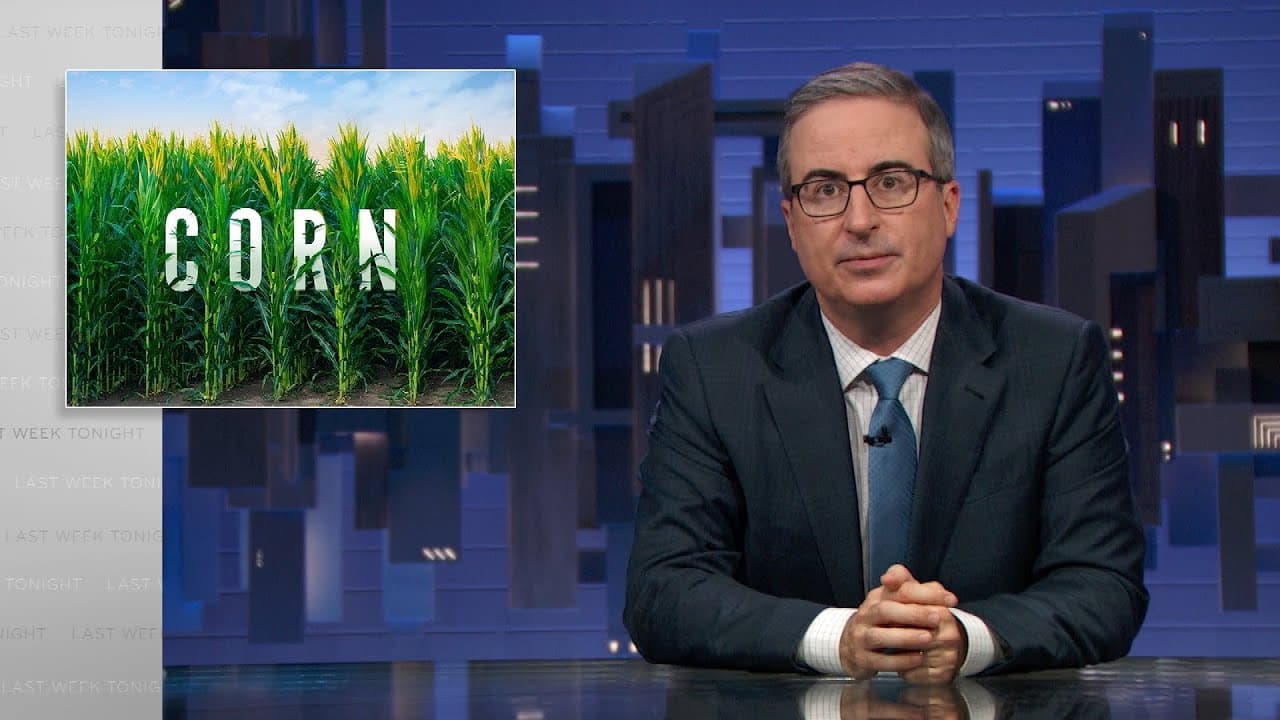Corn: Last Week Tonight with John Oliver (HBO)
23 May 2024 (over 1 year ago)

Corn's Significance in the US
- Corn holds a special place in American culture, with diverse uses and a prominent presence.
- The Illinois Corn Maze, the world's largest corn maze, showcases intricate designs that change annually.
- Presidential candidates often engage in unusual behaviors around corn during their campaigns.
Corn Production and Consumption
- The US dominates the global corn market as the largest producer, consumer, and exporter.
- The majority of corn is used for livestock feed and ethanol production, with only 1% directly consumed by humans.
- Field corn, used in various industrial products, accounts for the remaining corn production.
Government Policies and Subsidies
- Government policies heavily subsidize corn production, encouraging farmers to grow more corn and leading to overproduction.
- These policies primarily benefit large-scale producers, while small family farms often miss out on subsidies.
- Some landowners exploit loopholes by subdividing farms to collect multiple payouts.
Environmental Impact of Corn Production
- Overproduction of corn has adverse environmental effects, including soil erosion, water pollution, and loss of biodiversity.
- The corn industry's reliance on chemical fertilizers and pesticides raises health concerns.
Ethanol Production and the Renewable Fuel Standard
- Ethanol, produced from corn, accounts for a significant portion of domestic corn use and was promoted during the 1970s energy crisis.
- The Renewable Fuel Standard mandates blending a certain amount of renewable fuel, such as ethanol, into the domestic gasoline supply.
- Ethanol production has increased demand for corn, benefiting farmers but also leading to negative consequences like increased greenhouse gas emissions, water depletion, and environmental damage.
Addressing the Negative Impacts of Corn Production
- Rethinking the Renewable Fuel Standard and resetting farm policy are necessary to address the negative impacts of corn production.
- One proposal suggests making the federal safety net for farmers contingent on their strategies for preserving topsoil, controlling chemical runoff, and reducing greenhouse gas emissions.
- The upcoming farm bill renewal presents an opportunity for these changes, but powerful interests may resist them.
Balancing Corn's Significance with Negative Impacts
- Corn is a source of pride and jobs for many Americans, but it is crucial to shift farming policy to address its negative impacts.